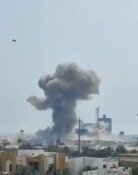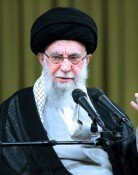Unsolved Mysteries over KNRs Involvement in Russian Oil Field Development Project
Unsolved Mysteries over KNRs Involvement in Russian Oil Field Development Project
Posted March. 30, 2005 23:34,
As time passes, there are growing repercussions of the investment project of the Korean National Railroad (KNR) in developing oil fields in Russia. In the highly risky oil field development project, the reason is unclear as to why KNR participated in it as well as whether or not political power has intervened. It is noteworthy whether such suspicions will disappear, as auditing is under way.
Background on Oil Field Development
KNR started on the oil field project in Sakhalinsk, Russia in August of last year. As it is the biggest oil consumer after the Ministry of Defense among the government agencies, it intended to procure oil in a stable manner, and resolve the never-decreasing deficits by raising profits from developing oil fields.
Represented as the Korea Railroad Transportation Promotion Foundation, an incorporated association under KNR, and joining with a domestic real estate company, High-End Group (with Chon Dae-wol as CEO then), KNR established a subsidiary Korea Crude Oil Inc. (KCO), which was supposed to manage the oil development project for six regions in the southeastern part of Sakhalinsk. At that time, the direct manager of Shin Kwang-soon (currently president of KNR) was appointed as the director of the board for the foundation.
In October of the same year, KNR, represented as KCO, signed a contract with Nimir Petroleum Co., which owns the oil field in Sakhalinsk as a subsidiary of Alpha Group, Russias third largest oil developer in Russia. According to the contract, KCO was to buy shares of Petro, which has the right to oil field development as a subsidiary of Nimir Petroleum Co., at $6.2 million (approximately 6.2 billion won), and by November 15 of the same year, Nimir Petroleum Co. was to receive a permit for oil field development from the Russian government.
For the deposit money, KNR paid $6.2 million (approximately 6.2 billion won). However, the Russian government gave a conditional permit, saying, Development is allowed, but overseas shipment is banned on November 22. Thinking it would never be acceptable, KNR asked for a refund, claiming a breach of contract. KNR argued, The contract stipulates that once it is cancelled due to a breach of contract (here, meaning not getting the permission for development), the deposit money must be returned within a week. However, Nimir Petroleum Co. refuted, saying, The Korean side misinterpreted the text.
From late last year up to now, there has not been much progress despite negotiation on three occasions.
Suspicions in the Course
KNR explains that it went through the inspection procedures and feasibility review last October. KNR officials said, Anyone could have been attracted to it as the oil reserves were estimated to be 7.5 billion barrels, the volume Korea would use for a decade. However, the Korea National Oil Corporation even doubted if the project would drive profits, leaving some suspicions of KNRs rush in the project. One KNR official reported, At that time, the current deputy minister of Construction and Transportation Kim Se-ho (director of Korean National Railway then), ex-deputy director of KNR Shin Gwang-soon and Wang Young-yong, director of the project development, and few others were well aware of the project, meaning it was secretly carried out.
In addition, Lee Kwang-jae of the Uri Party is rumored to have exercised his power, creating ripples in the political circle. He is known to have come from the same hometown as the High-End Groups former chairman, an acquaintance of his. On this, Lees spokesman said, Around October last year, Shin Kwang-soon, president of KNR, came to the parliament and met with assemblyman Lee for about five minutes, as Shin was then newly appointed. It is a deplorable backbiting way to say Lee was involved in it. He added, When Mr. Shin talked about his oil field project, Lee even asked, Does KNR even conduct oil business? showing how Lee has nothing to do with it.
He also said, We are thinking of bringing the case to court for false reporting and character assassination following legal review, against some media groups that brought up suspicions.
Ki-Jin Lee In-Jik Cho doyoce@donga.com cij1999@donga.com






![‘부화방탕 대명사’ 북한 2인자 최룡해의 퇴장 [주성하의 ‘北토크’]](https://dimg.donga.com/c/138/175/90/1/wps/NEWS/IMAGE/2026/02/27/133414028.1.jpg)
